Forspoken Tips And Tricks For New Players

Forspoken is a brand-new action RPG from Square Enix and Luminous Productions, and we’ve got plenty of tips and tricks for how to approach the early hours of your playthrough. The game brings a whole lot of magic-based mechanics to the table along with a huge open world to explore, so it can be a lot to take in all at once.
You’ll assume the role of Frey Holland, a struggling young New Yorker who gets transported to another world at a point when life gets tough for her. She’s just as confused as you are throughout the experience, but we’re going to clear a few things up for you ahead of time. The tutorials are timely yet frequent, but they can be easy to miss or skip over when exploration is your main focus.
Before you take control of Frey to venture out into the mythical world of Athia, there are a few details you should know about. The story starts off in a linear fashion, holding your hand a bit until you’re finally let loose into the four major regions that make up Athia. When that happens, you can choose to either follow the main story objectives or take some time to improve Frey’s stats and unlock more magical abilities by visiting a few optional points of interest.
We suggest doing a bit of both to give Frey as many powers as possible, but this list of advice will be useful whether or not you decide to speed through the main storyline.
Change up the game balance

Forspoken offers a decent amount of freedom when it comes to the difficulty settings. If you’re having trouble switching spells in the heat of battle early on, you can change the Spell-Switching Slowdown option in the Game Balance menu to Full Pause, which means you’ll get more time to think about your abilities in combat. By default, switching spells only slows down time for a bit, instead of fully pausing the action. You can also adjust stamina recovery speed, lower or raise the damage received, enable auto-evasion, and more.
Quiet the Cuff
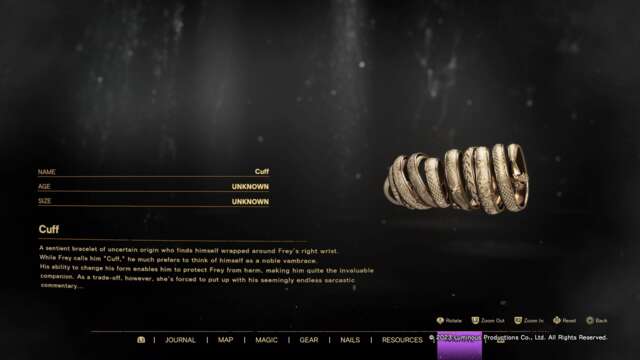
Frey and the mysterious Cuff will speak to each other often, whether it be to exchange quips, discuss recent events, or just to fill the silence. There are a few genuinely funny moments, but if you’re not a fan of Cuff’s dialogue with Frey, you can adjust the frequency of these conversations in the Accessibility settings menu. The Minimal option will make it so that only mandatory dialogue is heard, which means you’ll only hear from Cuff when his words are related to the plot.
Check the compass often
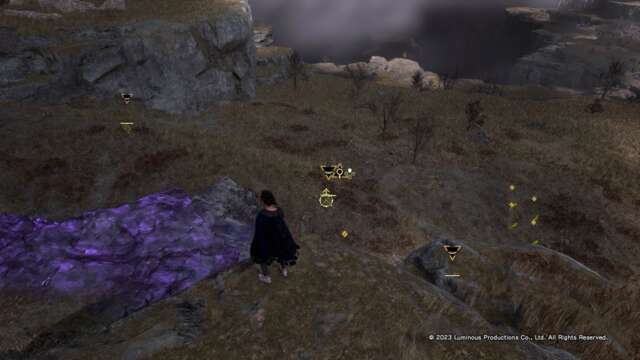
Athia’s open world is larger than you’d think, and the 3D map can be a bit confusing to understand if you’re not looking at it from the correct angle. Thankfully, your talkative wrist accessory can help with that. Use the Cuff Compass by holding Up on the D-Pad if you’re ever unsure of where to go–a trail will point you in the right direction. And open the Journal to switch between tracked objectives. Simply pressing the button also helps, as it scans the immediate area for nearby loot and enemies while also revealing enemy weaknesses.
Manage your stamina

Forspoken’s parkour mechanics are arguably its most enjoyable gameplay feature. The parkour system uses a stamina meter that also gets consumed whenever Frey dodges or takes fall damage. It’s important to remember that fall damage won’t kill you as long as you have stamina left in your meter. Frey will be shaken up and you’ll need to wait until her stamina recovers, but she’ll be alive. So, don’t hold down sprint while running off of any high ledges.
Support, then attack

Frey uses three types of magic: Support, Attack, and Surge. Support Magic often provides buffs or passive damage and must recharge after each use. It’ll recharge faster if you land hits with Attack Magic, so it’s usually best to start off encounters with Support, then go on the offensive. You can also switch between Support spells when one is on cooldown since all spells have independent timers.
Surge Magic is essentially an ultimate move that can be used when the Surge meter is full. You’ll need to use a mix of Support and Attack moves to fill it up, so remember to stay varied in your combos during combat.
Keep an eye out for Mana Pools
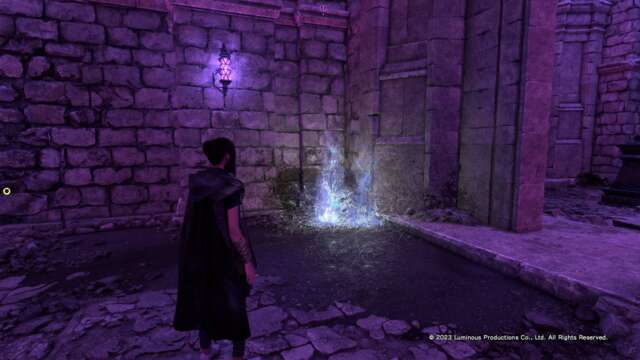
This is a tip that can get lost among the rest of the early-game tutorial messages, but those glowing wisps all over Athia are worth picking up. They’re called Mana Pools, and they’ll provide free Mana–the currency used to purchase new magic spells. You get Mana for completing quests, leveling up, and clearing points of interest, but Mana Pools are easy to find and they’re everywhere. Just run through a pool to pick up the Mana. No need to even stop or press a button.
Refund your magic
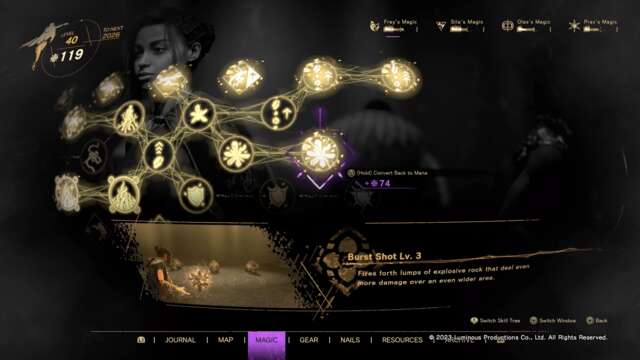
Frey’s skill trees give you access to a wide range of spells, but you won’t always like what you purchase. Those little preview clips can be deceiving at times. You can convert bought spells back into Mana, essentially refunding them. This can be done for all the non-mandatory spells that you choose to obtain and the refund is an equal exchange, meaning you won’t lose any Mana if you change your mind about a purchase. Open up the Magic menu and hold the Convert prompt over a spell to get that refund.
Take those Detours

Detours are Forspoken’s side quests, and new ones appear after most major story beats. Speak to NPCs in Cipal to start and complete their Detours when you can–some quests will become unavailable as the story progresses. There are also special Events in Cipal that should be completed before they disappear. They’re marked by question mark icons on the map and usually involve conversations with notable NPCs. The game does a good job of letting you know when irreversible progress is about to be made, so be sure to clear the Detours and Events as they pop up to earn new gear, useful items, and extra experience.
Get good grades
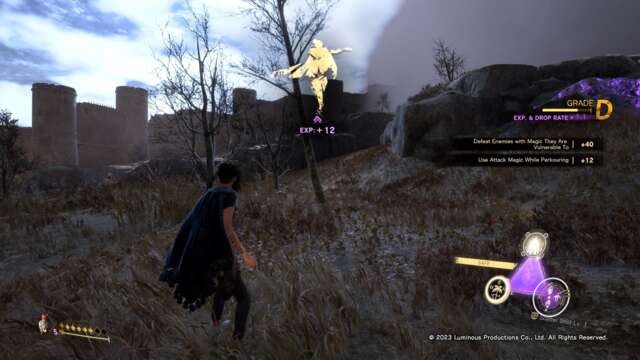
Each battle will have a grading system, similar to Devil May Cry and Bayonetta. Aim for high battle grades/rankings to earn more experience and items from each enemy encounter. Attacking enemies from behind for critical hits while avoiding damage will increase your score. Be sure to use the Cuff Scan to find enemy weaknesses and exploit them for extra points as well. Playing on higher difficulties will also make it easier to obtain better grades if you’re looking for more of a challenge.
Find the Founts of Blessing

Some of Freys’ magical abilities need to be found by exploring Athia–you can’t buy them with Mana or earn them through story progression. Visit glowing springs called Founts of Blessing to learn these spells. They’re often marked on your map along with other points of interest, so all you need to do is select them on the map and Cuff will show you the way. The Magic menu will also show you exactly where to find these hidden spells, so all you need to do is make the trip and jump in the fount.
Visit Pilgrim’s Refuges
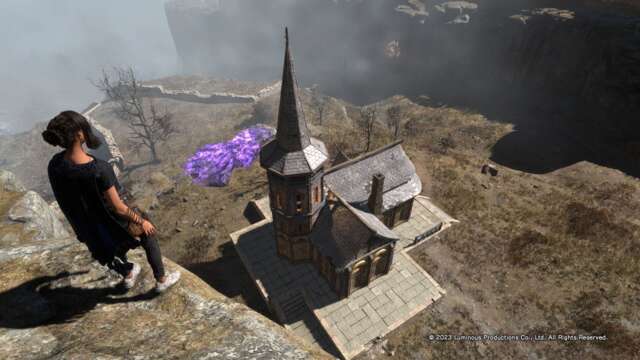
Like many open-world games, Forspoken has a fast travel system that requires you to unlock the locations you want to travel to. Pilgrim’s Refuges are essentially safe houses, littered throughout Athia. These literal houses act as fast travel points, and should always be entered if you see one nearby. They contain free healing items, beds to restore health, and crafting tables. Belfries also act as fast travel points, so it’s a good idea to walk up to those towers to unlock them, too.
Step inside the Locked Labyrinths
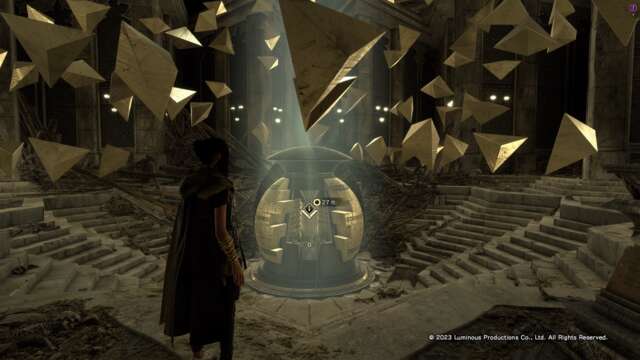
Locked Labyrinths are optional mini-dungeons that often contain worthwhile rewards. Complete the challenges inside to learn more lore, gain more Mana, and obtain useful gear for Frey. They’re essentially multi-room combat challenges that end in boss encounters. In our experience, they offer plenty of healing items, so, as long as you’re dealing enough damage, you should be able to outlast the waves of enemies on the way to the bosses.
Upgrade your spells
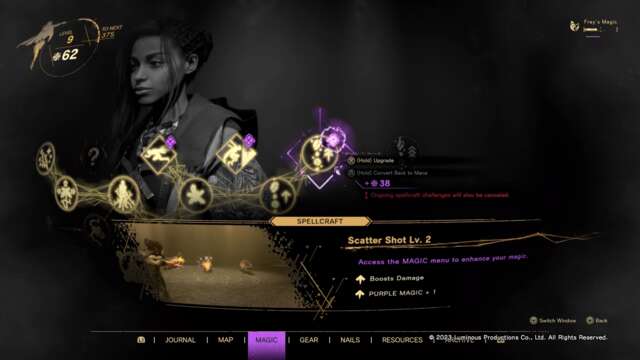
Spells can’t be upgraded through conventional means–no items or materials can be used to improve them. Instead, you’ll need to complete Spellcraft Challenges to upgrade Frey’s magic. These challenges often task you with using the magic in specific ways, like hitting three enemies at once with a single spell. Complete the tasks to upgrade the spells.
Early on, you’ll find Spellcraft Challenges in a book as part of a tutorial. This will unlock the bookshelves in Pilgrim Refuges, allowing you to accept these upgrade challenges from any safe house. You can keep track of them through the Magic menu, but only three challenges can be accepted at once, so focus on those, then choose new ones when they’re complete.
Escape the Break

When caught in a Breakstorm–the large wind storms that turn everything to a shade of blue–focus on finding your way out safely instead of fighting whatever’s inside. Your health will slowly drain and powerful enemies will appear. It’s not worth staying and fighting unless you need to do so to find a point of interest or complete a Spellcraft Challenge. Take shelter in a Pilgrim’s Refuge and use the bed to sleep until the storm blows over, unless it’s a conveniently-timed, plot-related Breakstorm.
Roll the dice

Once you’re able to roam around Cipal, enter the tavern to find a dice-like item called partha sitting next to the bartender. Roll the partha whenever you’re about to engage in combat for extended periods of time. Depending on how you roll it, Frey will get a temporary passive buff. This can be done every once in a while, so be sure to check the map or surrounding area for marked partha to interact with–they’re found in several spots across Athia, not just in the Cipal tavern.




